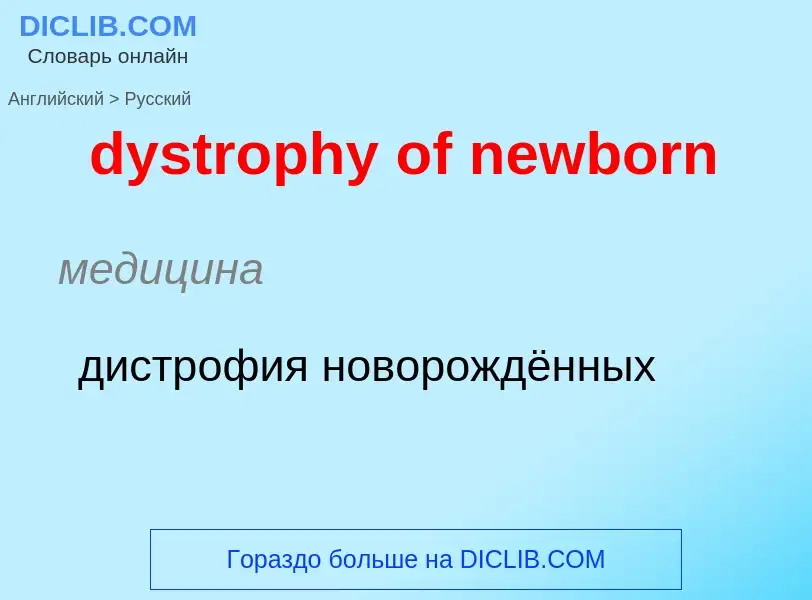Перевод и анализ слов искусственным интеллектом ChatGPT
На этой странице Вы можете получить подробный анализ слова или словосочетания, произведенный с помощью лучшей на сегодняшний день технологии искусственного интеллекта:
- как употребляется слово
- частота употребления
- используется оно чаще в устной или письменной речи
- варианты перевода слова
- примеры употребления (несколько фраз с переводом)
- этимология
dystrophy of newborn - перевод на русский
медицина
дистрофия новорождённых
[mʌskjulə'distrəfi]
медицина
дистрофия
атрофия мышц
мышечная дистрофия
миодистрофия
медицина
плече-лопаточно-лицевая дистрофия
плече-лопаточно-лицевая миопатия
Определение
.
Википедия
Vitamin K deficiency bleeding (VKDB) of the newborn, previously known as haemorrhagic disease of the newborn, is a rare form of bleeding disorder that affects newborns and young infants due to low stores of vitamin K at birth. It commonly presents with intracranial haemorrhage with the risk of brain damage or death.
Newborn infants have low stores of vitamin K, and human breast milk has low concentrations of the vitamin. This combination can lead to vitamin K deficiency and later onset bleeding. Vitamin K deficiency leads to the risk of blood coagulation problems due to impaired production of clotting factors II, VII, IX, X, protein C and protein S by the liver. More rarely VKDB can be caused by maternal medicines causing vitamin K deficiency in the newborn.
VKDB can largely be prevented by prophylactic supplementation of vitamin K, which is typically given shortly after birth by intramuscular injection. Most national health organisations recommend routine vitamin K supplementation after birth. Widespread use of this has made this a rare disease.





![Structure]] of DUX4 protein full-length (FL), with short (S) version indicated. Structure]] of DUX4 protein full-length (FL), with short (S) version indicated.](https://commons.wikimedia.org/wiki/Special:FilePath/DUX4-FL Protein.png?width=200)





![Microscopic cross-sectional views of FSHD-affected [[muscle fiber]]s. Visible is inflammation and fibrosis, as well as muscle fiber shape change, death, and regeneration. Microscopic cross-sectional views of FSHD-affected [[muscle fiber]]s. Visible is inflammation and fibrosis, as well as muscle fiber shape change, death, and regeneration.](https://commons.wikimedia.org/wiki/Special:FilePath/Facioscapulohumeral muscular dystrophy histology.jpg?width=200)

![[[Funduscopy]] of the retinal: (A) normal blood vessels (B) tortuous blood vessels, as often seen with FSHD [[Funduscopy]] of the retinal: (A) normal blood vessels (B) tortuous blood vessels, as often seen with FSHD](https://commons.wikimedia.org/wiki/Special:FilePath/Retinal vessel tortuosity.jpg?width=200)


![Scapula-to-scapula scapulopexy, pre- and post-operation. The scapulas are tethered together into a retracted position with an [[Achilles tendon]] graft, which, in this case, rendered the rhomboid major muscles distinguishable. Scapula-to-scapula scapulopexy, pre- and post-operation. The scapulas are tethered together into a retracted position with an [[Achilles tendon]] graft, which, in this case, rendered the rhomboid major muscles distinguishable.](https://commons.wikimedia.org/wiki/Special:FilePath/Before and after Scapula-to-scapula scapulopexy FSHD.png?width=200)
